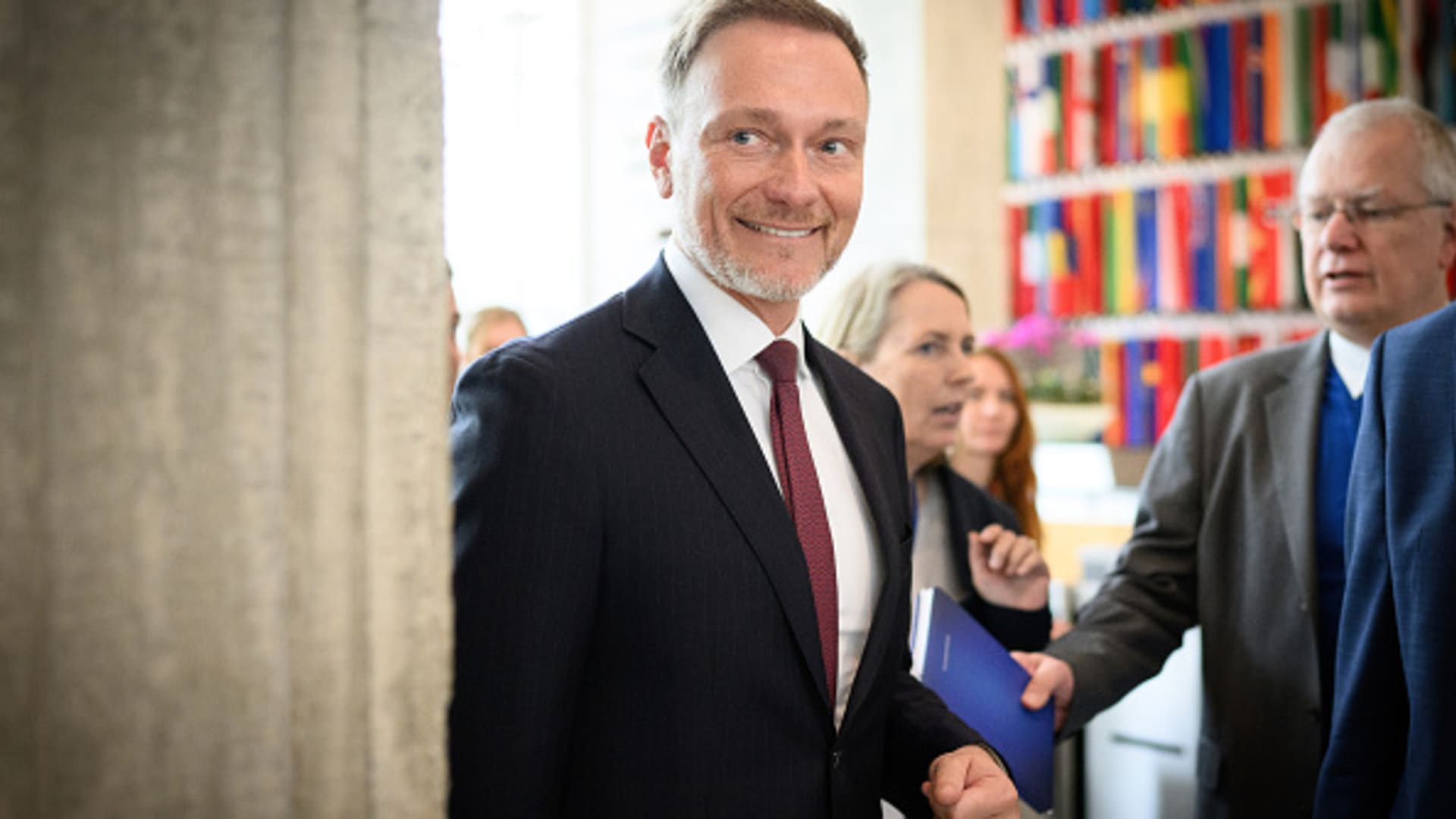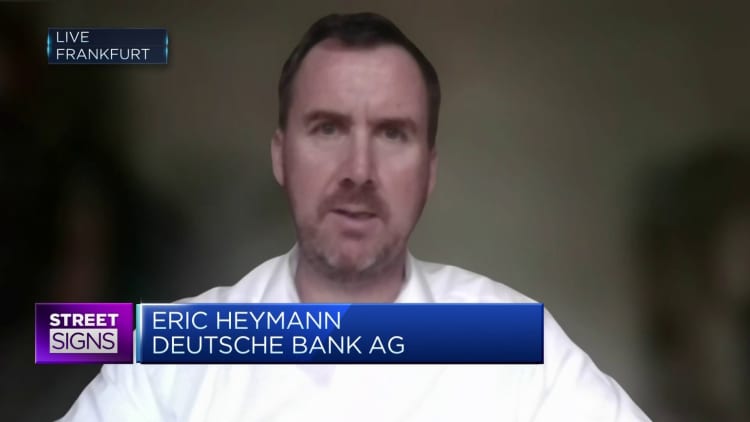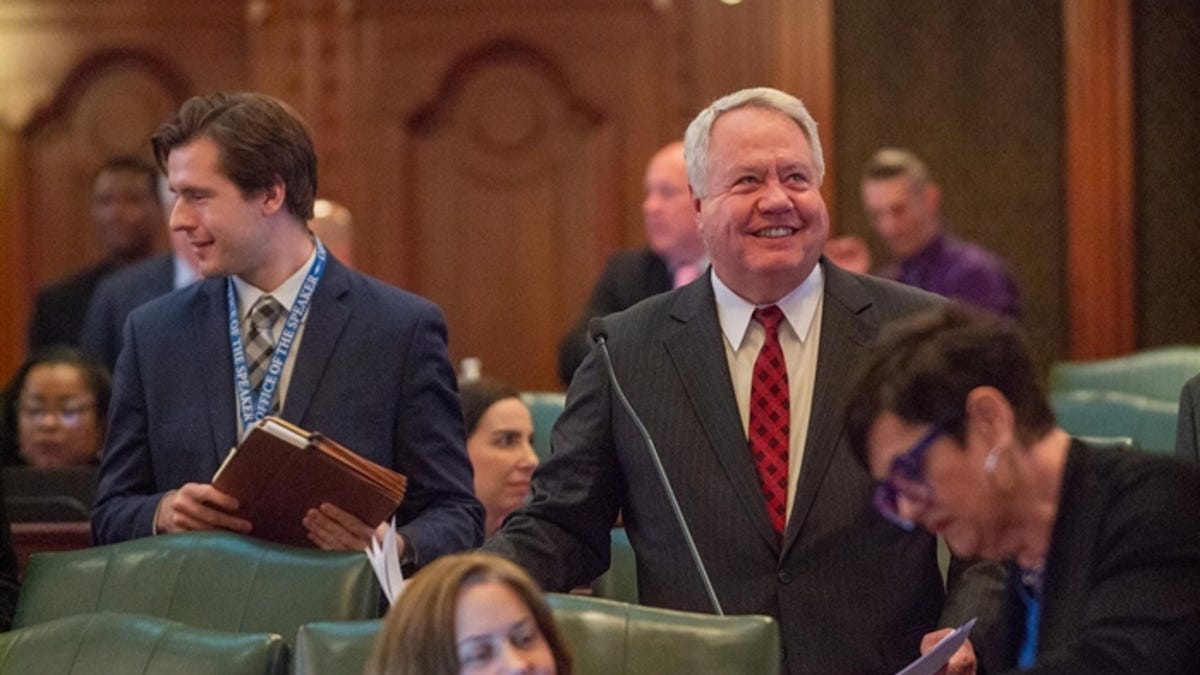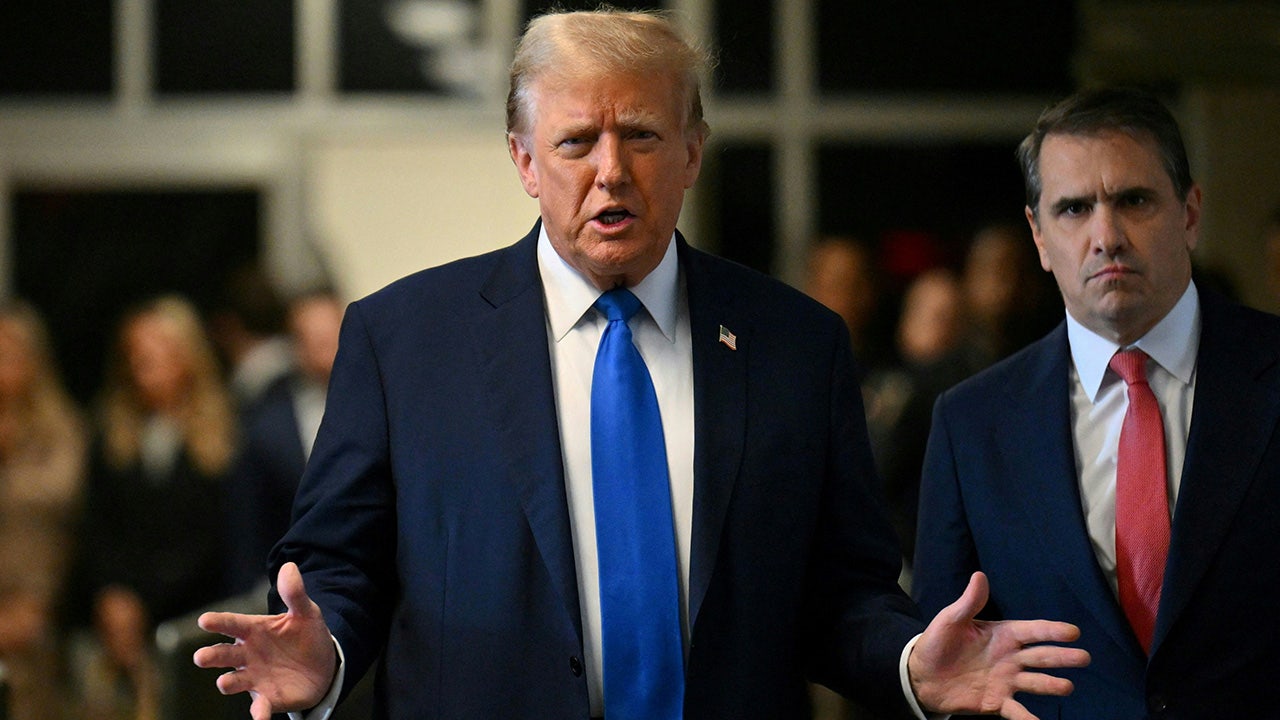Finance
German cars are the best in the world, its finance minister insists: 'They do not have to fear Chinese competition'

Christian Lindner (FDP), Federal Minister of Finance, is on his way to a bilateral meeting with US Treasury Secretary Yellen at the headquarters of the World Bank.
Bernd von Jutrczenka | Picture Alliance | Getty Images
German carmakers do not have to fear competition from China and are still considered the best in the world, German Finance Minister Christian Lindner told CNBC.
“German cars are the best cars in the world, doesn’t matter if internal combustion engine or electrified vehicle,” he told CNBC’s Karen Tso on the sidelines of the IMF Spring Meetings in Washington, D.C., on Thursday.
“German car manufacturers are world leading, they do not have to fear Chinese competition,” Lindner said.
Competition in the electric vehicle, or EV, market in China and Europe, as well as the U.S., has been heating up in recent months. More and more Chinese companies are making headway when it comes to EVs, and China’s BYD has been in close competition with Tesla for the crown of biggest EV maker.
China’s EV sector has seen substantial growth, sending a large amount of vehicles to other markets that often come at a more accessible price point. This rapid development has raised questions and concerns about China’s trade practices and policies in the U.S. and the European Union.
U.S. Treasury Secretary Janet Yellen last month warned that China may be using global markets as a dumping ground for cheaper clean energy products, including EVs. This could push down market prices and put pressure on green manufacturing elsewhere, Yellen said.
Both Yellen and European Commission chief Ursula von der Leyen earlier this month called for a tough stance on potential unfair competitive practices from China. The European Union has also launched an investigation into Chinese subsidies for EVs.
China has denied any wrongdoing, with its Minister of Commerce, Wang Wentao, saying that any allegations about “overcapacity” were without merit. China’s success in the EV sector was linked to “constant innovations” as well as a “well-established supply chain system and market competition,” rather than subsidies, he added.
Concerns from the U.S. and EU cover a range of green technology sectors, including EVs, solar panels and lithium-ion batteries.

Lindner on Thursday said that the potential dumping of Chinese products onto global markets needed to be examined, as would concerns that China is paying subsidies to producers for selling cars below production value.
“This would be unfair and then we would have to, to decide about measures,” Lindner said. However, so far it had not become clear that China was in fact following this dumping approach when it comes to EVs or other industries, he noted.
When asked what these measures could look like, Lindner said that all options were on the table. This echoed comments from Yellen, who earlier this month told CNBC that she would not rule out any measures, including tariffs on Chinese exports.
There has however been reluctance from the German government in particular about such tariffs, with a spokesperson for German Chancellor Olaf Scholz saying that he was skeptical about whether they were necessary, according to Reuters.
This came ahead of Scholz’s visit to China earlier this month, during which he warned against unfair competitive and trade practices.
While there would eventually be Chinese cars in Europe, competition must be fair and there must not be any dumping, overproduction or copyright infringements, he told students at Tongji University in Shanghai, according to Reuters.
Lindner on Thursday told CNBC that there were also advantages to Chinese green technology exports such as “very cheap” Chinese solar components that have poured into German markets.
“The private households in Germany, they benefit from these cheap components and our advantage, our competitive advantage is the system as a whole,” he explained.

Finance
Faegre Drinker Grows Dallas Finance & Restructuring Practice

Glenn Reitman has joined Faegre Drinker as a partner in the finance & restructuring practice in Dallas, the firm said Thursday.
Reitman represents lenders and borrowers in structuring, negotiating, and documenting finance transactions, according to Faegre Drinker. He has particular expertise with commercial, real estate, and energy projects and structured financing.
His finance practice includes private equity, venture capital, leveraged buyouts, structured products, loan workouts, and restructurings, said the firm.
This story was produced by Bloomberg Law Automation.
Finance
What will the finance team of the future look like – Accountancy Age

Author
Date published
May 2, 2024
Categories
A significant part of the work we do at AICPA & CIMA is about looking at trends within the profession and using them to discern what the future of accounting looks like, so as to best prepare our members to thrive within it.
This is the rationale behind our Future of Finance 2.0 project, of which we have just released the latest iteration. This paper highlights and explores what I think is the most significant long-term trend which is currently reshaping the accounting and finance profession, and it essentially relates to mindset.
In the past, it would be fair to characterise our profession as being quite rigid and rules based. This is not intended to be derogatory, it is simply a reflection of the work we did and the career paths we followed to do it. What we are seeing today, and will see more of in the future, is a shift towards a more expansive mindset, with value-creation at its heart.
Our work will incorporate a wider range of responsibilities, including but not limited to being the stewards of sustainability data and strategy and working with colleagues in all parts of the of organisations we serve to drive efficiency, productivity and sustainable value creation.
Sustainability
Sustainability is one of the key drivers of change within the profession, but it is important to understand that this is not just a response to regulatory changes which require us to present the data. While these are obviously important, it is important to look beyond this, and to apply the value creation mindset I have mentioned, because this is where the opportunities are.
Forward thinking organisations are not approaching this in terms of “we have to report”. They are looking at how their business models can adapt to produce truly sustainable growth, because that is where competitive advantage will be found.
Now clearly, that is not a description of the majority of workplaces at the moment, but you can see evidence of the direction of travel in our survey results. We found that 48% of accounting and finance professionals are currently measuring the impact of sustainable initiatives and only 45% say that they are currently measuring the performance of these initiatives. That is a significant proportion, and the fact that more and more companies are looking at the performance of these initiatives shows you where we are heading.
Business partnering is the way of the future
Another big change our research picked up was the increasing move towards the business partnering model. Something which struck me as very significant was the difference in attitudes towards the future we found among the professionals we surveyed. 60% of them said they identify as finance business partners, and 84% of those are extremely optimistic about the future of the profession. Of the 40% who say they don’t identify as finance business partners, only 15% said they are optimistic about the future of the profession. I think that is a pretty good indication of where our profession is heading, so I strongly recommend you take that into account in your career planning.
To make the most of this trend, the accountants of the future will need the ability to use data and analytics combined with business acumen, so they can improve strategic decision-making and drive business performance within their organisations.
Overall the challenge for the profession which our research identified is the need to adapt to the requirements of sustainable business practice while exploiting the possibilities of new technology. To succeed we will have to adopt a multi-capital perspective of value while learning to work across organisational boundaries. If we can achieve this, we can look forward to a bright future. Demand for data-driven decision-making and sustainable business models is only going to grow, so we can be confident that the need for strategic value creating finance teams will make us a valuable partner in every organisation in the years to come.
Subscribe to get your daily business insights
Finance
Belvedere finance committee previews draft budget

Belvedere’s growing fire service expenses in the proposed draft budget for next fiscal year have raised concerns among the city’s finance committee.
The committee reviewed the $9 million draft budget on Tuesday. The 2024-2025 budget proposal shows a $1.2 million general fund deficit by the end of June 2025.
City staff said there may be some small growth in revenues and a slight increase in spending, particularly with the city’s fire services contract.
General fund revenues are projected to be $9.1 million, but the city’s expenses and outgoing transfers add up to $10.3 million — a 5.8% increase over the current year budget. Transfers to various funds include $300,000 to pension trusts and $650,000 to critical infrastructure.
Helga Cotter, director of administrative services, said they expect to close out the current fiscal year with an excess of $1.4 million, which would cover the deficit.
“It is also important to note that some of these transfers out are not associated with current year expenses,” Cotter said. “Specifically the critical infrastructure reserve and the 115 pension trust fund transfers are being made to fund anticipated future expenses, allowing budget smoothing.”
Most of the city’s income is earmarked for costs relating to fire protection, police services and the department of public works, according to the draft budget. Around $1.1 million is planned for capital projects, which includes the seawall and retaining wall projects.
Robert Zadnik, the city manager, said the retaining walls along Beach Road are particularly concerning and a No. 1 priority; $175,500 is set aside for the project in the draft budget. However, Zadnik said the current solution proposed by engineering experts does not address seismic concerns.
“This isn’t something new that was a surprise to us,” Zadnik said. “We’ve known through the committee to protect Belvedere seawalls, levees and utilities that this was a vulnerability, a threat.”
The majority of the city’s revenue, 71%, comes from property taxes. Cotter said the property tax forecast shows a potential 5% increase, equal to $358,000, for the budget year, and that revenues in the general fund could increase 2%, or about $177,000. No grant funding is included in the draft budget, but Cotter said the city will continue to look for grant opportunities.
A significant change in costs is a 7.5% increase in Tiburon Fire Protection District’s contract. The fire service deferred some of its annual Section 115 contributions — a trust account needed to fund employee benefits — to keep a fairly consistent cost to the city. Without this, the increase to the budget would have been approximately 14%. Still, the city anticipates a payment to the district of over $92,500, and will make an additional payment in the future.
Currently the fire service contract is around $2.1 million, but is expected to increase to $2.4 million in the next budget cycle.
Sally Wilkinson, a nonvoting City Council member on the committee, said fire expenses have been growing about 6% annually for the past 20 years, while the city’s expenditures have grown at 4.4%. She suggested closely analyzing the long-term trends in cost over the past years — and the projected increases in the future.
“I think it would be useful just to distribute some numbers and some charts just to give a clearer impression of where that has gone and, as you say, project it out 20 years just to see when that crunch really hits,” Wilkinson said.
Other expenses include a one-time payment for the Martha property of $125,000, adjusting city staff salaries for cost of living by 3% for the budget year, and housing element legal costs.
Capital improvement expenditures include projects throughout Belvedere, such as road maintenance including pavement repairs, crack sealing, and traffic marking; emergency preparedness work like vegetation and fire fuel reduction throughout the city; and technology upgrades.
Cotter said the city plans to make a payment of about $250,000 in pension related debt, but unfunded accrued liability payments to CalPERS are expected to increase over the next five years. While the city plans to continue the around $300,000 per year in debt payment, the budget expects the required pension contributions to rise from $195,000 in in fiscal year 2025 to $415,000 in budget year 2029.
Zadnik said the total remaining pension debt at the end of this fiscal year will be $1.6 million.
The budget forecast meets the city’s reserve goals. Belvedere’s policy is to have equal to half of the general fund expenses, plus the pension debt and fire services cost. Reserves are meant to cover around six months of operating costs in the event of a catastrophic event. The draft budget leaves Belvedere $150,0911 over the amount required by policy.
“What worries me is this budget is in deficit,” said John Wilton, a member of the committee. “This is one of the only years we’re running a pretty significant deficit.”
Wilton said he would like more explanation behind how the five-year projections do not show a continued or increased deficit, and asked staff to show how they were going to “turn it around.”
The City Council is scheduled to review the draft budget at its May 13 meeting. A public hearing is set for June 10. The new fiscal year begins on July 1.
-

 News1 week ago
News1 week agoLarry Webb’s deathbed confession solves 2000 cold case murder of Susan and Natasha Carter, 10, whose remains were found hours after he died
-

 Education1 week ago
Education1 week agoVideo: Dozens of Yale Students Arrested as Campus Protests Spread
-

 World7 days ago
World7 days agoHaiti Prime Minister Ariel Henry resigns, transitional council takes power
-

 News1 week ago
News1 week agoFirst cargo ship passes through new channel since Baltimore bridge collapse
-

 World1 week ago
World1 week agoUS secretly sent long-range ATACMS weapons to Ukraine
-

 World1 week ago
World1 week agoTurkey’s Erdogan meets Iraq PM for talks on water, security and trade
-

 World1 week ago
World1 week agoSpanish PM Pedro Sanchez suspends public duties to 'reflect'
-

 News1 week ago
News1 week agoAmerican Airlines passenger alleges discrimination over use of first-class restroom

















